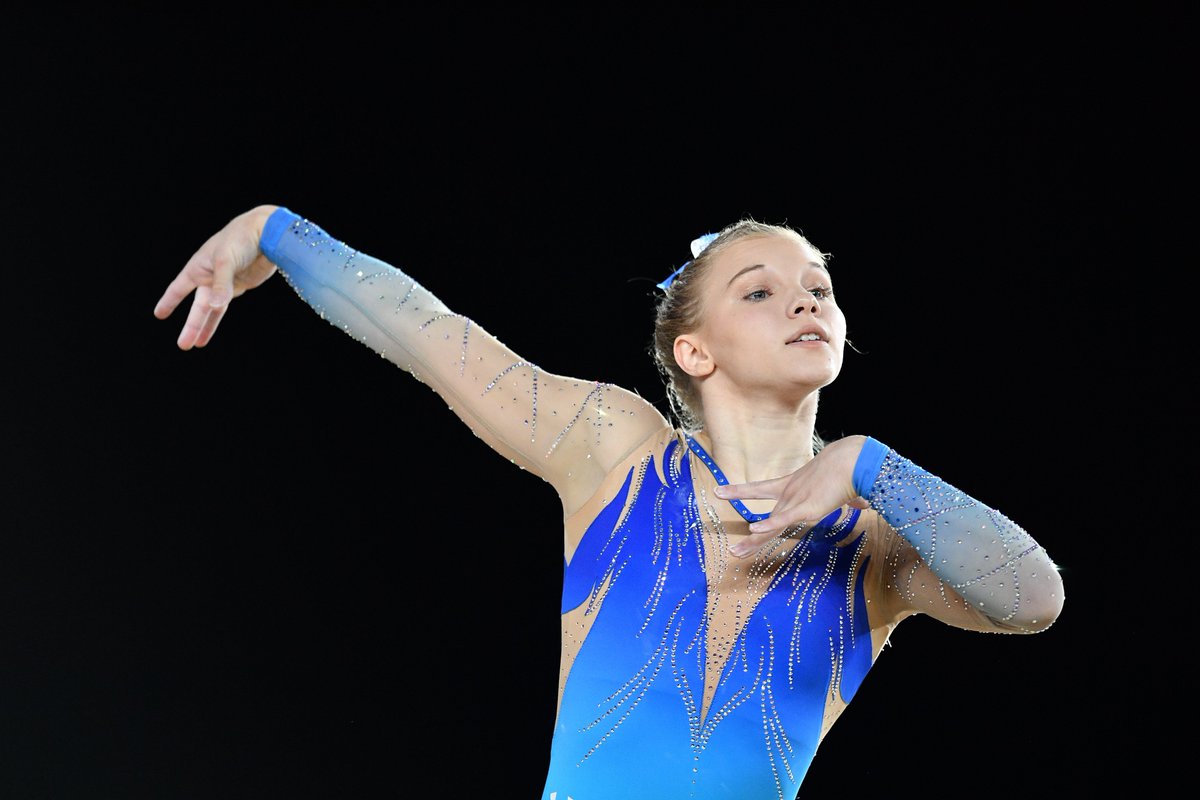
By Nancy Armour |
That “free” education NCAA athletes get has never really been free, and the costs are greater for some athletes than others.
As the possibility of athletes being able to profit off their “name, image and likeness” becomes more likely, and there’s a Senate committee hearing Tuesday to delve into this very issue, much of the focus has been on the impact for football and basketball players. But female gymnasts stand to benefit as much as anyone.
Elite gymnastics remains, for the most part, a young woman’s sport. The best American gymnasts compete internationally in their teens, maybe into their early 20s. While there are commercial opportunities for household names such as Simone Biles or Shawn Johnson, they are rarities. Most athletes instead retain their eligibility, going to college when their elite careers are done.
But when their NCAA eligibility is done, so are they. There is no professional league, and no woman has made a world or Olympic team after completing her eligibility since Athens silver medalist Mohini Bhardwaj.
“You either get to go pro or you get to go to NCAA,” said Morgan Hurd, who has retained her eligibility despite winning the world all-around title in 2017. “There’s no in-between, you get one or the other. But football players, they get to go to NCAA and then they get to go pro, too, and get paid.”
What makes the plight of female gymnasts unique is that most have built up followings during their elite careers, and that fame is an added benefit to their school.
A benefit for which they get nothing.
When Madison Kocian won gold at the Rio Olympics as part of the Final Five, UCLA’s press release on it touted her as “UCLA incoming freshman Madison Kocian.” When she and Kyla Ross, a gold medalist at the London Olympics, made their debuts at the 2017 season opener, it was the lead note in the meet preview and the release featured a photo of Kocian from Rio.
“We’ve worked really hard, so I feel like it would be fair that we would be allowed to” profit from pre-college success, said Jade Carey, who helped the U.S. women win a gold medal at last year’s world championships and is committed to Oregon State.
It’s not unlike the added spotlight a Zion Williamson brought to Duke. Or a LeBron James would have brought to a school, had he gone to college. The difference is they at least knew they’d be cashing in once they got to the NBA.
The gymnasts are not looking to become millionaires or for six-figure contracts. But if they’ve built up a following before they even get to school, or develop one while they’re there, they, like so many other athletes, believe they should be able to reap the benefits.
Katelyn Ohashi was featured on talk shows and news programs after one of her floor routines went viral in January 2019. Politicians tweeted about her. She was featured in Rolling Stone’s “Women Shaping the Future” issue, and asked to do op-eds.
She didn’t get a dime from any of it.
MyKayla Skinner, who won a team gold and a bronze on vault at the 2014 world championships and was an alternate for the 2016 Olympics, is arguably the most successful gymnast in Utah history. That’s made her something of a celebrity in both Salt Lake City and her hometown of Gilbert, Ariz., and she easily could have gotten in-kind deals, if not outright cash, from, say, make-up artists, hair dressers, caterers or florists when she got married last fall.
Instead, companies that posted photos from Skinner’s wedding were told to take them down.
“Because it’s promoting their business because I’m in it,” she said, rolling her eyes.
And don’t even start on the deals Skinner could have with leotard companies.
“It does get frustrating at times,” she said. “It would be nice to get rewarded for working so hard, especially when you don’t get to have the chance to go pro or anything.”
Colleges and conferences are making millions off of their “student-athletes.” It’s only fair they be allowed to make some money off themselves, too.
This article was republished with permission from the original author and 2015 Ronald Reagan Media Award recipient, Nancy Armour, and the original publisher, USA Today. Follow columnist Nancy Armour on Twitter @nrarmour.